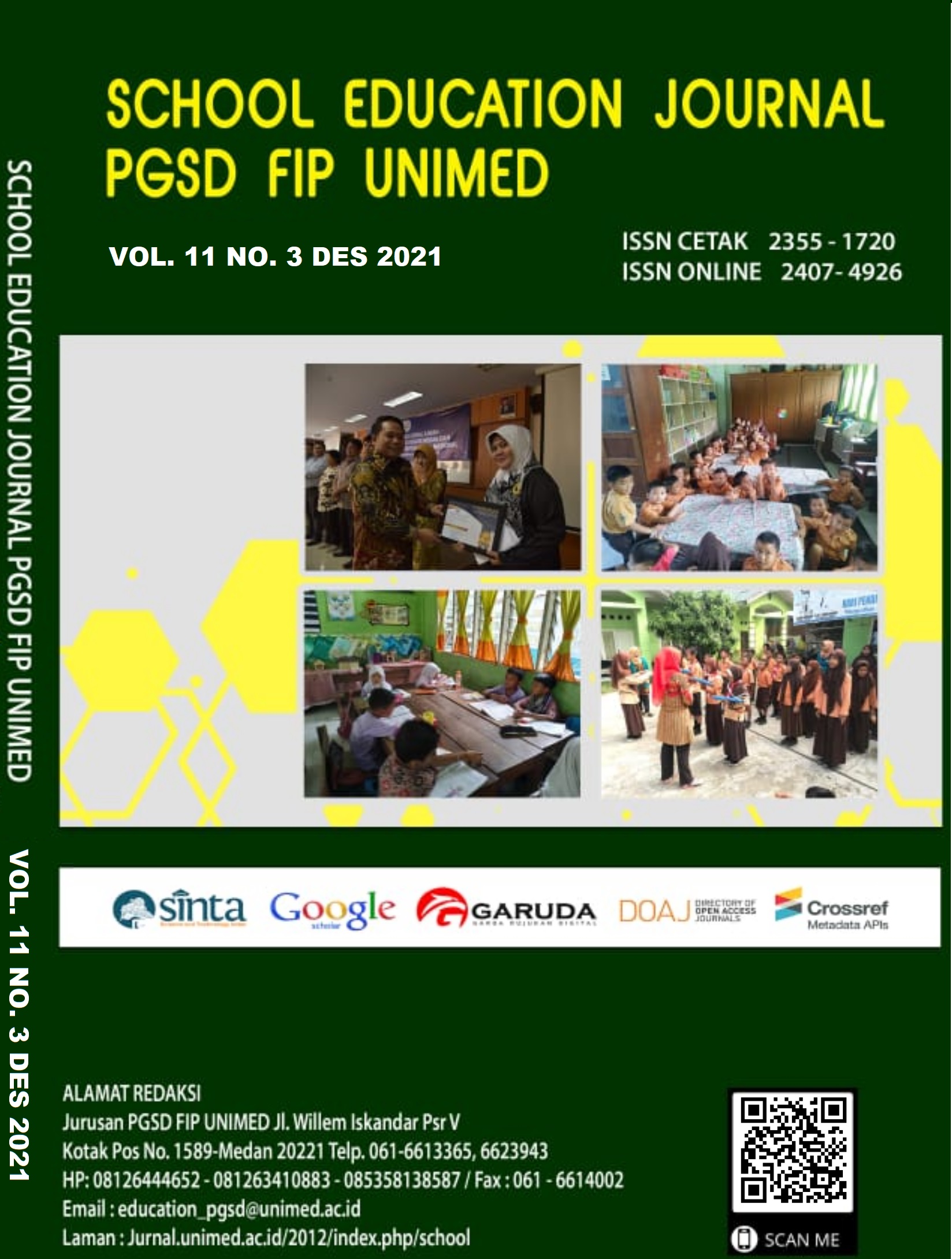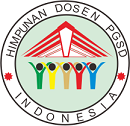HYBRID LEARNING TIME MODIFICATION CAN IMPROVE LEARNING ACTIVITY AND LEARNING OUTCOMES
DOI:
https://doi.org/10.24114/sejpgsd.v11i3.27922Keywords:
Time Modification, Hybrid Learning, Active Learning, Learning OutcomesAbstract
The purpose of this study was to determine the effectiveness of hybrid learning time modification in terms of learning outcomes; knowing the relationship between learning activities and learning outcomes and knowing the effect of hybrid and one other group is the conventional group (face-to-face only), this group is the control group.Collecting data using a learning activity questionnaire and a knowledge test to determine learning outcomes. Data analysis technique with Ancova. The results of the study: (1) hybrid learning time modification is effective in improving learning outcomes (2) significant relationship between learning activity and learning outcomes, significance 0.000; (3) there is a significant difference in the effect of variations in hybrid learning time modification on learning activity and learning outcomes, the significance of 0.037Keywords: Time Modification, Hybrid Learning, Active Learning, Learning OutcomesReferences
Adi, S. 2014. Pengaruh Modifikasi Waktu Belajar Terhadap Peningkatan Kebugaran, Konsep Diri, dan Prestasi Akademik. Surabaya: Disertasi, tidak Dipublikasikan.
Dewantara, D., Wati, M., Misbah, Mahtari, S., Haryandi, S. 2020. Blended Learning to Improve Learning Outcomes in Digital Electronics Courses. https://doi.org/10.2991/assehr.k.200219.054
Hamdi & Slamet, S. 2016. Implementasi Modifikasi Pembelajaran dan Simple Feedback Dalam Pembelajaran Aktivitas Permainan Bola Voli Untuk Meningkatkan Waktu Aktif Belajar. Jurnal Pendidikan Jasmani dan Olahraga, Vol.1 No.2, September 2016.
Hariadi, B., Sunarto, M.J.D., Sudarmaningtyas, P., Jatmiko, B. 2019. Hybrid learning by using brilian applications as one of the learning alternatives to improve learning outcomes in college. International Journal of Emerging technologies in Learning 14(10), pp.34-45
Klimova, B.F., Kacetl, J. 2015. Hybrid Learning and its Current Role in the Teaching of Foreign languages. Procedia-Social and Behavioral Science 182, page 477 -481, Published by Elsevier Ltd.
Mizokami S. 2018. Deep Active Learning from the Perspective of Active Learning Theory In: Matsushita K. (eds) Deep Active Learning. Springer, Singapore. https://doi.org/10.1007/978-981-10-5660-4_5
Mohamad, N., Masek, A., Zawawi, Z., & Mohd Zuki, F. S. 2020. Attitude and Motivation of Engineering Students™ towards Participating in Student-Centered Learning Activities. Universal
Nurmahen. 2017. Pengaruh Metode Blended Learning Terhadap Pemahaman Konsep Dalam Pembelajaran IPS. (Universitas Pendidikan Indonesia-respository.upi.edu)
Sudjana, Nana. 2016. Penilaian Hasil Proses Belajar Mengajar. Bandung: Remaja Roesdakarya
Published
Issue
Section
License
Authors whose manuscripts are approved are approved as follows:
- The publication rights for all journal manuscript materials published/published on the SEJ (School Education Journal) E-Journal site are held by the editorial board with the author's knowledge (moral rights remain with the manuscript authors).
- The formal legal requirements for accessing this electronic digital journal article are subject to the terms of the Creative Commons Attribution-ShareAlike (CC BY-SA 4.0) license, which means that E-Journal SEJ (School Education Journal) has the right to store, transfer media/format, manage in the form of a database, maintain, and publish articles without asking permission from the author as long as the author's name remains as the copyright owner.
- Manuscripts published/published electronically are open access for educational, research, and library purposes.










